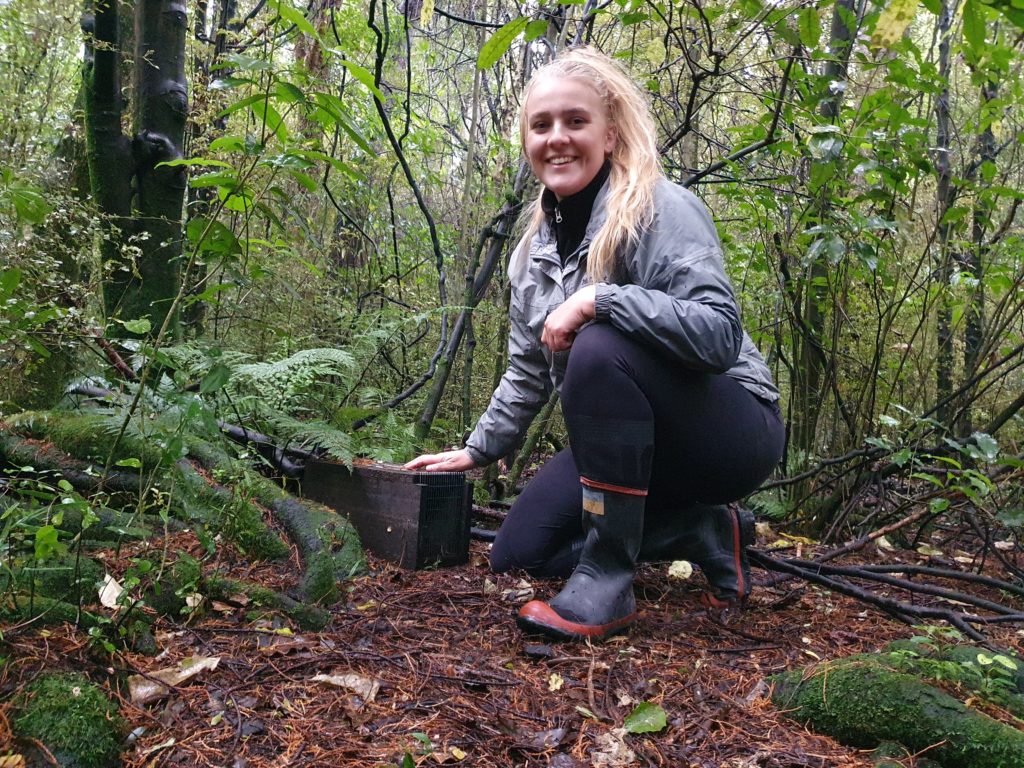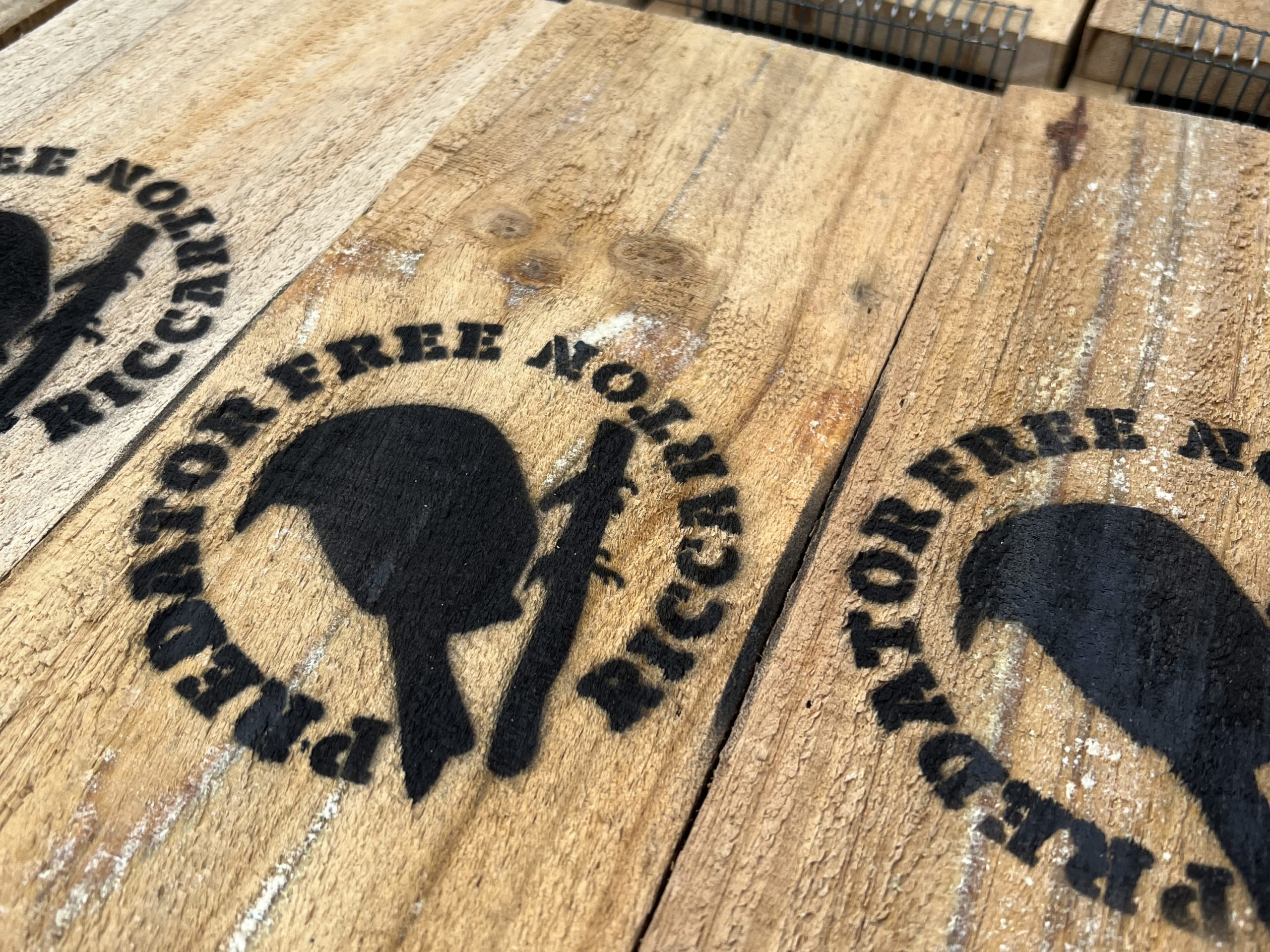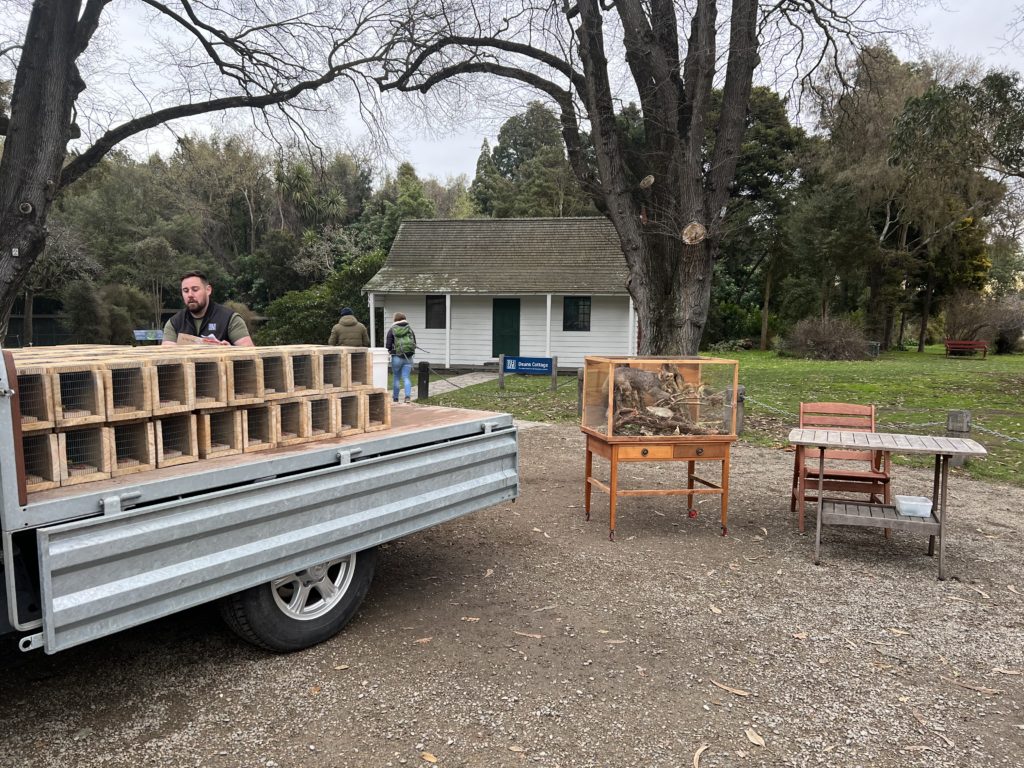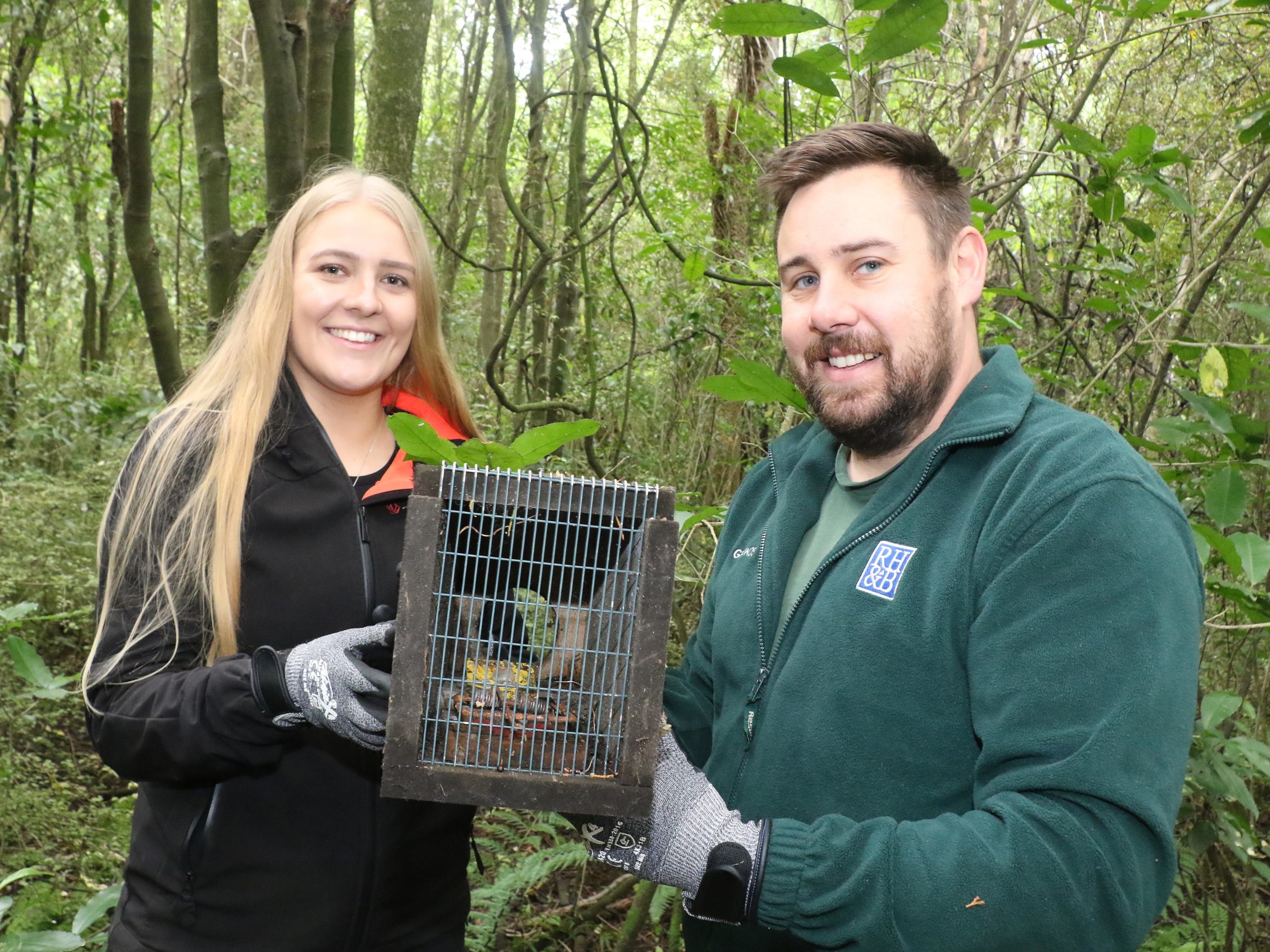Predator Free Riccarton is one of the newest community trapping groups in Christchurch and there’s plenty of work ahead for the tenacious group of volunteers.


For Jade Humphrey, the future is birds. Lots of birds. But as the founder of Predator Free Riccarton, the present is rats. Lots of rats. “We were doing monitoring and saw a rat eating our bait within 15 minutes of putting it out. So there’s a big problem here,” Jade says.
Since receiving a $5000 kickstart in April as part of Predator Free New Zealand Trust’s funding for community initiatives, Jade’s been frantically building traps and connections with other like-minded people and groups.
And if she’s going to bring back native birds to Riccarton’s estimated 6627 backyards, she’ll need both.
A bush without an orchestra
Jade’s formative years were spent exploring the pristine native lowland forests surrounding the Lower Hutt suburb of Wainuiomata. Among her companions were tūi, pīwakawaka (fantail), korimako (bellbird) and kererū. The soundtrack to her childhood was no Top 40 hit, but rather the chorus of birdsong.
“Growing up, I remember we had tūī, geckos and wētā in our backyard, and it was just such an amazing experience, seeing that every day,” she says.
When she moved to Christchurch to pursue her PhD in Geology she realised something was missing.
There was no cacophony of sound. “Moving to Christchurch, I guess it felt a bit empty. There wasn’t as much going on in the native animal scene. I saw a few pīwakawaka flying around and some bellbirds, but I just felt like some work could be done.”
It spurred her to action. Predator Free Riccarton was hatched – with advice and mentorship from local conservation groups and park ranger Mike Steenson from Riccarton House and Bush park.
She says bringing back nature’s orchestra to the city is the long-term aim, and for her, that includes the complex and haunting melody of one particular star performer.
“I want future generations to have that same experience I had growing up, being connected to nature, experiencing seeing nature.
“I would love to see tūī back in Canterbury because they’re incredible. They’re beautiful birds.”
For that to happen would be no small accomplishment – Christchurch is the only major city in Aotearoa New Zealand without a common resident population of tūī.
To get that orchestra humming again will take a concerted community effort with people like Jade as the conductors.
Growing a movement
Bordering the western edge of Christchurch’s sprawling Hagley Park, Riccarton is home to one of the city’s youngest populations.

According to 2018 census data, more than half of the suburb’s 24,000 people were between the ages of 15 and 39. The median age was 28, it was 37 across the whole city.
Not surprising, given the University of Canterbury campus sits at Riccarton’s northern border.
For Jade, students and young people are the best bet for building momentum and delivering on the promise of Predator Free 2050.
Already the University of Canterbury, including the student-led group Environmental Science Society (EnviroSoc) and the Student Volunteer Army, have got stuck in building, managing and checking traps, including on campus.
Scout groups and schools have also shown enthusiasm.
“There’s good potential there. These are the people who are going to become young professionals in the future. It’s really just kind of instilling it into all levels of society,” Jade says.
But while students may have the eagerness, they can also prove a challenge.
The typically transient nature of students who may up and move each year doesn’t really mesh with a long-term, intergenerational strategy.
One way around that has been to work with landlords to include the traps as a condition on a tenancy agreement. Tenants would receive training on setting the trap safely and logging their results.
Jade believes the longevity and success of the group is tied not just to successful trapping stats but to growing a movement Riccarton can be proud of.
“For us, it’s not just about the trapping. It’s about getting the community together. It’s about engaging people with nature,” she says.
‘Putting power in their hands’

Few people probably delight in listening to stories about trapping, but it can really make Jade’s day.
“What keeps me going day-to-day is hearing people say ‘Oh, I caught a rat! I’m so happy.’ Hearing their passion, that they’re making a difference, hearing that really makes me happy.
“Making people feel like they’ve made a difference, I think that’s amazing. Putting the power into their hands is quite cool,” she says.
For those too squeamish about trapping, there are plenty of other ways to help native birds flourish.
Planting days and rubbish clean ups are just as important to create hospitable environments which encourage birds to stay, feed and nest.
Predator Free NZ has advice for starting your own predator free group and an interactive map to discover groups in your local area, so anyone can help make sure the future is birds. Lots of birds.

